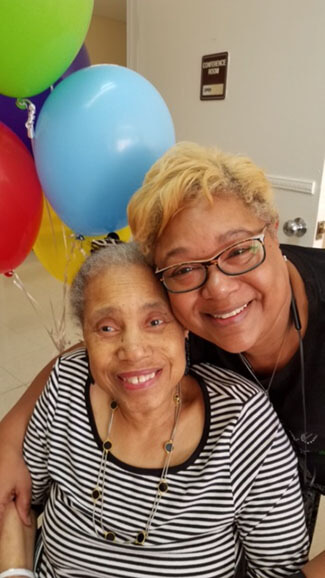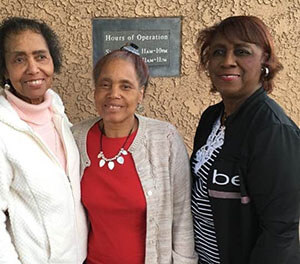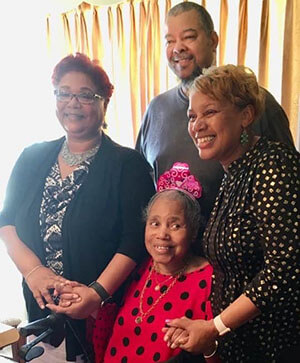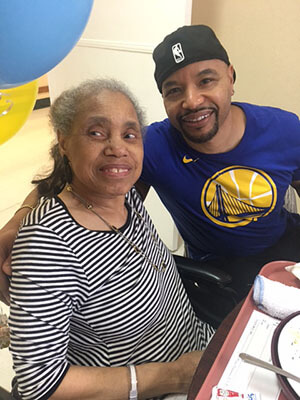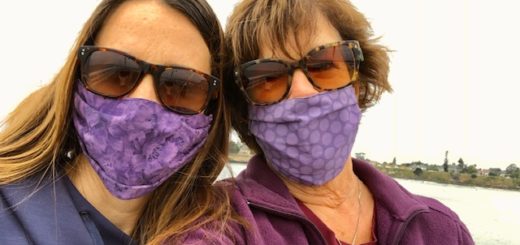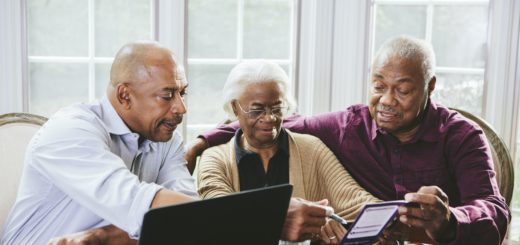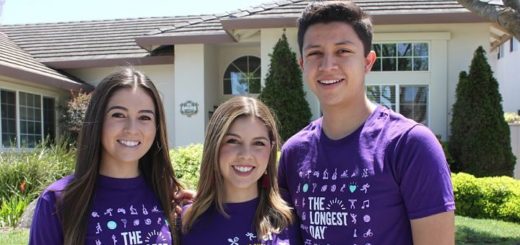Fairfield woman creates dementia Facebook group to help other caregivers
After her mother passed with dementia, Karen Chiles found she was angry at the disease. Channeling her anger into something positive, Karen decided she wanted to help people. She created a Facebook group for family caregivers, especially those in the Black community. Karen honors her mother and aunt, who also had the disease, by sharing her experience as a caregiver so others know they’re not alone.
Sorting the mail
Doris White was a quiet person, with a beautiful smile, who loved her family. She grew up in Tulsa, Oklahoma and moved to Denver when she was 18. Eventually, she settled in the California Bay Area, hoping to find a better life. She was not disappointed; she soon met her husband and together they had two children.
Once in California, Doris started working for the civil service and later for the United States Postal Service. Doris was responsible for sorting all the mail into the appropriate slots. The key to her job: knowing every street, zip code and address for the entire state.
“At first it was just Northern California,” said Karen Chiles, Doris’ daughter. “Then it was Southern California. She was tested once a year. If you didn’t pass, you’d be fired. My sister and I would stay up until 12 or 1 a.m. to help mom remember all the places. My father made her a sorter box like her job. She might have missed one [zip code] with us, but she always got 100% on the exam.”
A worried sister
Karen was always impressed by her mother’s ability to recall so many zip codes and street addresses. Which is why Karen was surprised to receive a phone call from her aunt who expressed concerns about Doris’ memory. Karen visited her mother often had hadn’t noticed anything concerning.
It wasn’t until Karen took her mother to a retirement party for a coworker that Karen saw it for herself. “My mother just dropped off to sleep at the dinner table,” said Karen. “The food came, and she just dropped her head and went to sleep. That wasn’t normal. It started happening whenever we went out, she’d drop off out of nowhere.”
Doris started missing doctor appointments and started telling Karen that she didn’t feel well but could never describe what was wrong. There were chores left unfinished and lights left on in the house, both of which were out of character for her. Karen received nervous phone calls from Doris asking Karen to come and check on her. When Karen would come over, she’d bring food but Doris would just pick at it.
The biggest red flag was during a graduation party for Karen’s son. “We had all of her family at the party,” said Karen. “Her sister had flown in from Oklahoma. There were over 100 people, including my husband’s side. Instead of mingling with everyone, she took a chair to the other side of the dining room and sat in the corner.”
While falling asleep in social situations isn’t necessarily a sign of dementia, it can be a symptom. People living with the disease may feel very drowsy during the day and then be unable to sleep at night. However, forgetting appointments, difficulty completing familiar tasks, changes in behavior and removing themselves from social situations are some of the 10 Early Signs and Symptoms of Alzheimer’s.
Getting a diagnosis
Karen took Doris to the doctor. At first, they thought it was Parkinson’s disease. However, after further testing they were able to rule that out. Eventually her doctor gave her a memory test and Doris couldn’t remember anything.
“The doctor had been her doctor for years,” said Karen. “I saw his face [when she couldn’t remember the story]. He sent her for an MRI and sent her to a neurologist. The neurologist had my mom draw a clock and put numbers on it. The clock was discombobulated.”
Doris was diagnosed in 2010 with dementia which was eventually changed to dementia with Lewy bodies (DLB). DLB is a type of progressive dementia that leads to a decline in thinking, reasoning and independent function. Some of its symptoms overlap those with Parkinson’s disease.
Companion trouble
After her diagnosis, Doris was told by her doctor that she could no longer live alone. Doris’ husband had died several years prior to her diagnosis, but she was currently dating a man whose company she enjoyed. She had him move in with her so she could remain independent and stay in her home.
Unfortunately, instead of helping Doris, he took advantage of her. Doris began withdrawing large amounts of money out of her bank account but none of her bills were being paid. The house was never cleaned or picked up.
One day, Karen received a phone call from Doris’ neighbors saying that Doris was up the street and wandering off. “I moved Mom in with me that day,” said Karen. “I got power of attorney, monitored the bank accounts, caught up on the bills and got him out of the house. I took full control so I could care for my mom.
For the next several years Karen kept Doris involved with activities for as long as Doris was capable of going out. She loved popcorn and going to the movies. Doris lived with Karen until she died in 2021.
Dealing with anger
After her mother’s passing, Karen was angry. “I lost my mom and I can’t get over it,” said Karen. “I’m suffering, I’m angry that my mother caught the disease. I’m angry with the disease.”
When Karen was at a networking event, she expressed this exact sentiment with a woman she met there. Karen was angry but wanted to help people who were in a similar situation as she had been. Her aim was to help them advocate for their loved one and access resources. The woman she met suggested Karen start a Facebook group to help get the information to families who needed help, especially those in the Black community.
Creating a Facebook “family caregiver” group
Black Americans are twice as likely as older Whites to have Alzheimer’s or another dementia. Among those who are 70 and older, 21.3% are living with Alzheimer’s. Over half of Black Americans think that significant loss of cognitive abilities or memory is a natural part of aging rather than a disease.
Karen realizes that her experiences don’t make her an expert in dementia, but she does know what it’s like to be a caregiver for someone living with the disease. She encourages people to check out the Alzheimer’s Association for resources and support but continues to share her personal experiences online to let others know they’re not alone.
“I want people to know who can help,” said Karen. “[The group] didn’t need to be pretty, I just needed to put the information out there. I’m not looking for notoriety or money. I’m here and I understand. I’m advocating for you [the caregiver]. I’m not a doctor or a nurse. I’m just a person who learned to maneuver [caregiving] on my own.
“People don’t understand what this disease can do. I share what happened to my mom and my aunt [who also died with dementia in 2022]. I put [the Facebook group] together and launched it last month. I’m at 74 members.”
Advice for caregivers
Karen suggests that caregivers get both a medical and financial (durable) power of attorney for your loved one. Power of attorney documents allow a caregiver to make decisions on behalf of their loved one when they are no longer able.
“That piece of paper speaks volumes,” said Karen. “You can get those doctors on point. I had to move mountains to get my aunt the care she was supposed to get. Because I was her medical power of attorney, I was able to do a lot more for her.”
Karen also understands that when you first learn that your loved one has been diagnosed with a form of dementia you will most likely be in shock. She recommends the first thing you do is reach out to the Alzheimer’s Association. “See what avenues you can take and where you can find references,” said Karen. “Call them (800.272.3900), it’s a big organization and a big community that can help.”
The Alzheimer’s Association 24/7 Helpline (800.272.3900) is available around the clock, 365 days a year. This free service is offered in over 200 languages and offers confidential support and information to people living with dementia, caregivers, families and the public.
For more information on resources for the Black Community visit alz.org/africanamerican.





